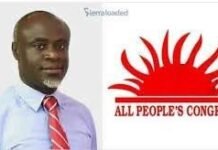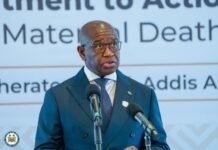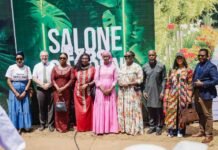By Foday Moriba Conteh
As Sierra Leone approaches the 2023 general elections, there is an urgent need to examine the current trends in the country’s political landscape, particularly concerning ethnic politics and hate messages. Given the nation’s history of a brutal civil conflict from 1991 to 2002, which resulted in the deaths of thousands and included heinous crimes against humanity, it is crucial to address the rise of ethnic and tribal instigation by politicians and their supporters across the country.
The central concern is that ethnic instigations and hate messages, especially those proliferating on social media from supporters of both the ruling party and the main opposition, have the potential to destabilize the state and could even lead to genocidal conflict if not properly managed.
The reality is that the two major tribes supporting these political factions harbor a strong sense of loyalty to their respective groups, often to the exclusion or demonization of others. This tribalism, usually connected by economic, social, or blood ties, creates a positive bias towards those within the same kinship, family, or clan, while alienating those from other tribes.
Self-serving politicians often exploit this tribal narrative to divide people for political gain. While ethnic identity has been a feature of Sierra Leone’s domestic politics since independence, it did not play a significant role in the 11-year civil conflict. Historically, the interconnectedness among various ethnic groups in Sierra Leone has mitigated deep tribal tensions.
However, tribalism is often fanned by politicians to either gain or retain political power. When political parties lack practical solutions for the electorate, they resort to ethnic or tribal manipulation. Unlike more developed democracies where policies and programs are key to election success, in Sierra Leone, tribalism becomes a safe haven for unscrupulous politicians during election campaigns.
Despite these challenges, the people of Sierra Leone have traditionally lived amicably, with intermarriages between tribes and widespread integration across the country. However, the current rise in tension and tribal hate messages spread through social media and other outlets is a serious concern. These messages are deliberate attempts by politicians to further divide the country for political gain.
A look back at the events leading to the genocide in Rwanda serves as a stark reminder. Hate messages spread by media outlets like Radio-Télévision Libre Milles Collines (RTLM) played a significant role in inciting violence. The station, owned by hardliners from the ruling regime, broadcast messages that dehumanized the Tutsi population, leading to widespread violence and genocide.
Drawing parallels to the current situation in Sierra Leone, where hate messages are spreading on social media, there is growing concern about the security and stability of the state. These messages undermine peace and contribute to the disintegration of relationships in an already polarized society based on ethno-regionalism.
It is imperative for Sierra Leoneans to remain vigilant and resist efforts to ignite tribal conflict. The nation’s stability and progress depend on maintaining peace and unity, especially as the general elections approach.




